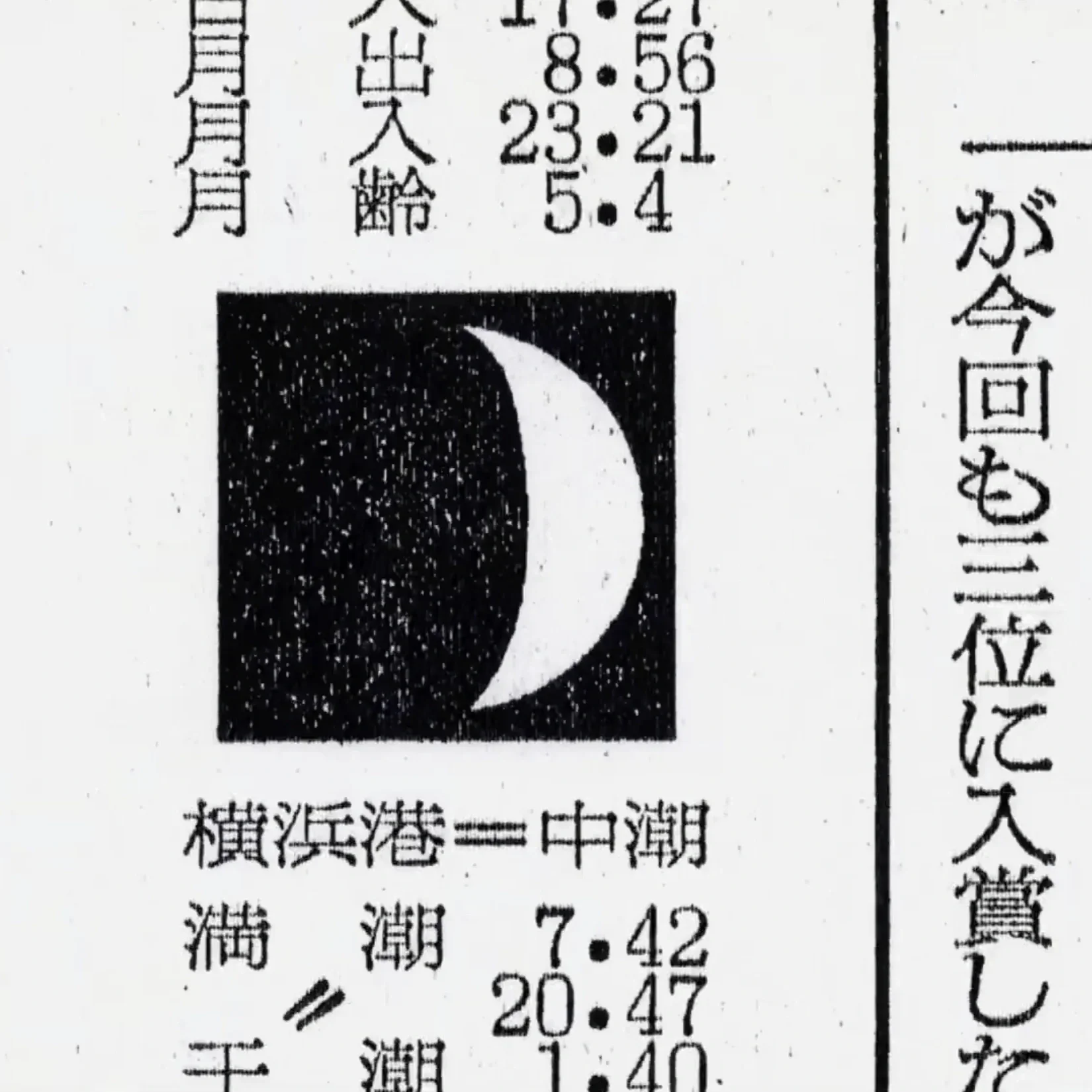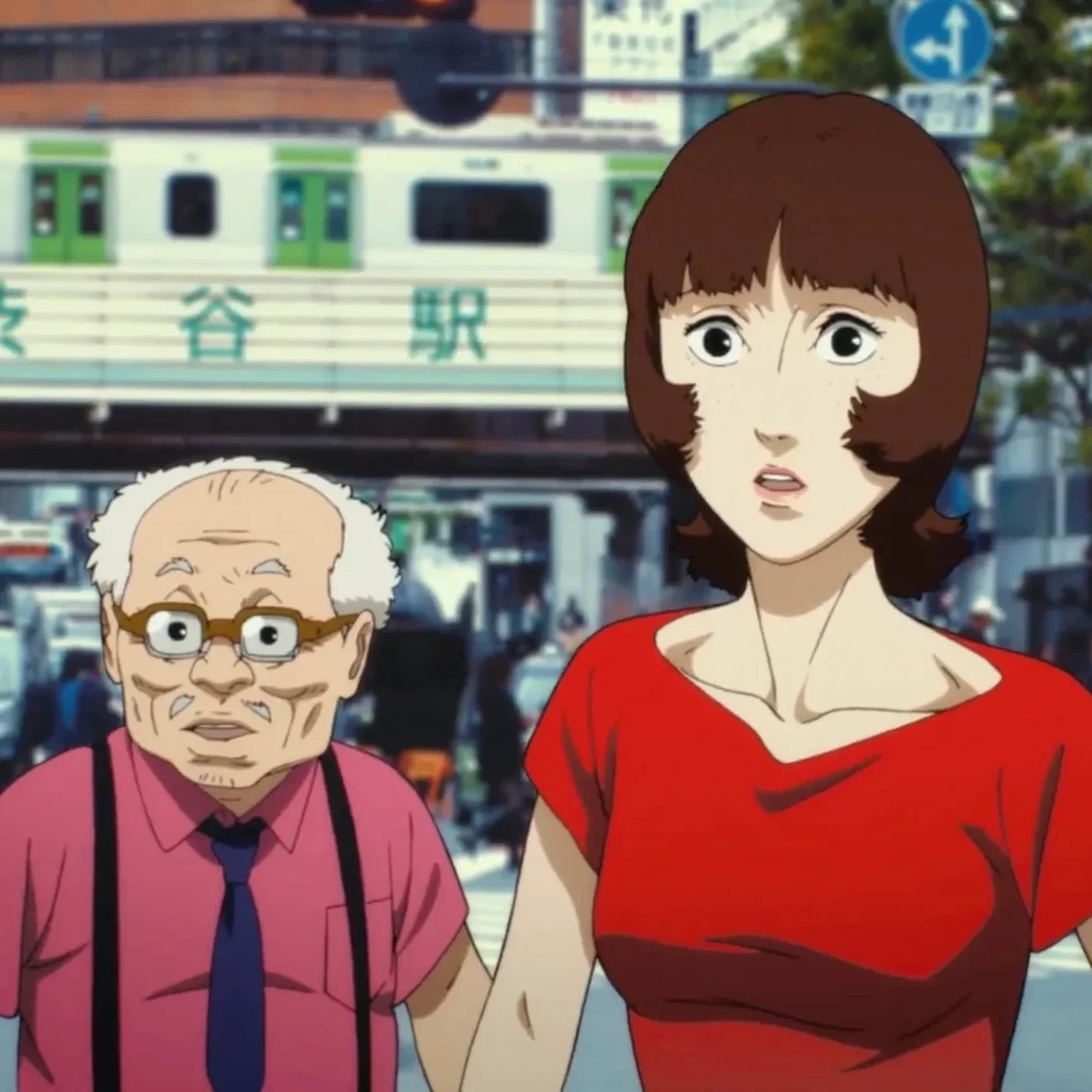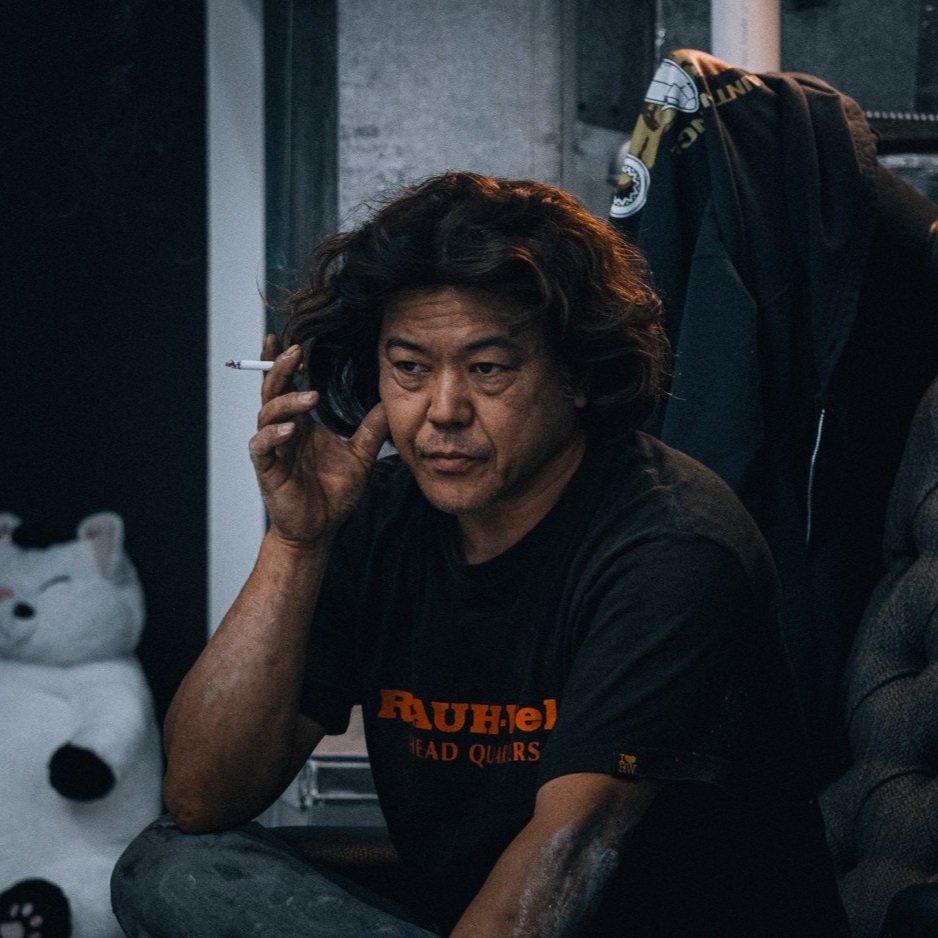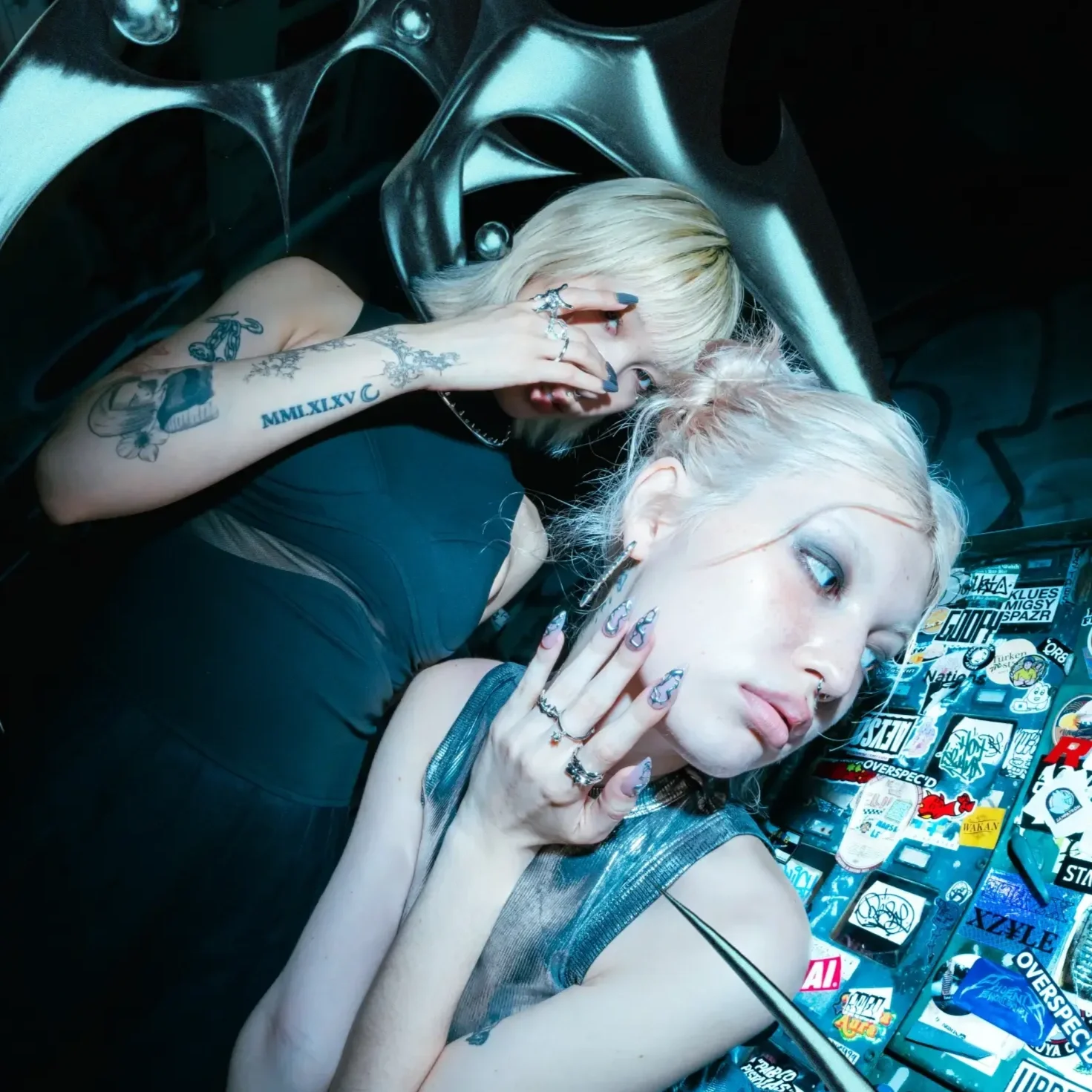How Cult Icon Jun Togawa Shaped Japan’s Anti-Idol Culture
from 'Jun Togawa Utopia'
Whether you recognize her from the energetic Suki Suki Daisuki, or from promoting Toto’s Washlet, Jun Togawa stands as an extraordinary figure in Japanese entertainment. A mixture of complex identity, marked by a life filled with sharp critiques and giving the finger towards societal expectations, makes this Japanese cult icon one who forever eludes categorization.
Emerging in the 1980s, Togawa’s plethora of work as both an actress and musician, fuses punk, new wave, and avant-garde sensibilities with strong political and feminist undertones, crafting a body of art that relentlessly questions identity and creative freedom—all while staying deeply personal.
Shaping Jun Togawa
Born in 1961 in Tokyo, Togawa grew up in a seemingly stable, middle-class household. Her father, a stern businessman dealing in fruit imports from Taiwan, and her mother, a gentle homemaker with a love for music, set the stage for Jun’s early exposure to the arts. Yet, despite the outward comfort of financial stability, Togawa’s childhood was far from peaceful. Her father’s rigid discipline—often backed by harsh punishments—loomed over her, creating an atmosphere of repression. Even into her university years, she remained under his control, culminating in a severe panic attack that finally forced her to break free and live independently.
Despite these struggles, the spark of performance was lit early. Along with her younger sister, Kyoko, Jun joined the Gekidan Himawari Theater Group, hoping to pursue a career in acting. But while Kyoko swiftly secured prominent roles, Jun was relegated to the background, a mere extra in comparison. This disparity bred tension within her family, with her parents openly favoring Kyoko and doubting Jun’s potential. Yet, Jun refused to bow to their skepticism. Her breakthrough came when she auditioned for the Shin Kokui Theater Troupe, delivering her lines with such raw, unexpected force that the judges were stunned into taking notice.
Jun Togawa
From Theater to Music - The Avant-Garde Awakening
Although Jun initially envisioned herself as an actress, the vibrant underground music scene of 1980s Tokyo drew her in. It was at the rock café Nylon 100% that she mingled with musicians, exploring the world of punk and new wave. Her first major step into music came when she joined the band Guernica in 1982, collaborating with members from the new wave group Halmens. Guernica’s sound was a surreal fusion of post-punk energy and wartime nostalgia, evoking images of a Europe that no longer existed while defying all musical conventions. It was strange, unsettling, and entirely new for Japan.
Guernica’s debut album, Kaizo e no Yakudo (1982), captured Togawa’s flair for the conceptual and theatrical. The band’s avant-garde aesthetic and its use of World War II motifs made Togawa an unmistakable voice in the experimental music scene. Although Guernica didn’t last long, the band left an imprint on Japan’s underground culture, setting Togawa on a path of artistic exploration.
Jun Togawa's robotic arm for 'Radar Man'
Solo Career - Suki Suki Daisuki
After Guernica disbanded, Togawa embarked on a solo career, releasing Tamahime-sama (Princess Tama) in 1984. This album launched her deep dive into themes of female transformation, societal pressure, and grotesque imagery. In the title track, a young girl metamorphoses into an insect—a dark and uncomfortable metaphor for the often painful transition from childhood to womanhood. Togawa’s disturbing yet captivating blend of haunting visuals and new wave melodies created a unique soundscape that set her apart.
Togawa didn’t shy away from addressing taboo subjects either; in other works, she touched on topics as intimate and rarely discussed as menstrual cycles and the physicality of female experiences. This discomforting, yet deeply resonant, portrayal of womanhood became a core element of her art. Togawa’s jarring blend of unsettling visuals and melodic new wave created a sound as unique as it was unnerving.
In 1985, she released Suki Suki Daisuki (I Love You So Much), where she satirized Japan’s idol culture with biting wit. The title track’s sugary, innocent façade hides an obsession, unraveling into emotional chaos and menace. Togawa’s vocal performance shifted between childlike sweetness and ferocious punk screams, creating a disturbing duality that exposed the contradictions and absurdity of Japan’s female idol phenomenon. This fusion of innocence with darkness became one of Togawa’s most enduring trademarks.
Yapoos - Descending Into Darkness
Togawa’s work grew even more radical with her band Yapoos, formed in the mid-1980s. Yapoos pushed boundaries in both sound and performance, merging punk energy with experimental music to confront taboo topics like death, gender, and isolation. Their debut album, Ura-Tamahime (1984), along with Yapoos Keikaku (1987), exemplified this chaotic, abrasive style. The band’s live shows often blurred the line between concert and performance art, with wild costumes and shocking antics that dared audiences to confront their own discomfort.
For many, Togawa’s work with Yapoos cemented her as a countercultural icon. The band’s refusal to conform to societal norms, combined with Togawa’s fearless stage presence, resonated especially with women and those drawn to the alternative music scene. Yapoos was a challenge, an assault on the status quo—and fans couldn’t get enough.
The TOTO Washlet Commercial
In a surprising twist, Togawa’s avant-garde image found its way into mainstream advertising—most notably in her collaboration with TOTO for their Washlet campaign. The 1988 commercial, promoting TOTO’s advanced toilet seat with a built-in bidet, was a cultural oddity in itself. Togawa, known for her eccentric, boundary-pushing art, appeared in the ad, singing a playful, catchy jingle while promoting the product’s cutting-edge features.
The commercial became an unexpected success, cementing Togawa’s role in pop culture far beyond the avant-garde music world. Her participation in the ad might seem contradictory to her subversive persona, but Togawa’s ability to blend high art with kitschy mainstream appearances reflected her refusal to be pigeonholed. Even in the realm of product endorsement, she maintained her unpredictability and flair for the unconventional. The jingle itself became something of a phenomenon, adding to her diverse legacy as an artist unafraid to tread unfamiliar terrain.
A Feminist Icon in the Making
Throughout her career, Togawa’s art has been defined by a constant rebellion against the rigid expectations placed on women in Japanese society. She played with grotesque imagery, intentionally unsettling audiences with the blend of feminine tropes and surreal horror. This deconstruction of the “idol” archetype positioned her as a fierce feminist figure—one who refused to conform, polarizing traditionalists but galvanizing those who yearned for something deeper.
Her outsider status, rather than isolating her, attracted a devoted following. Though labeled “Fushigi-chan” (mysterious girl) for her eccentric style, Togawa’s work wasn’t just enigmatic—it was a challenge to everything that was familiar and comfortable.
Constant Reinvention and Collaboration
Togawa’s willingness to continually evolve kept her career alive for decades. She worked with avant-garde noise artists like Hijokaidan, reimagining her classics through modern, experimental lenses. In 2016, to mark her 35th anniversary in the industry, she collaborated with Hijokaidan to release Togawa Kaidan, a daring reinterpretation of her past hits that breathed new life into her storied career.
Whether fronting Yapoos, collaborating with artists like Susumu Hirasawa, or venturing into avant-garde noise, Togawa has never ceased to experiment, and her influence continues to reverberate through both the Japanese and global music scenes.
Jun Togawa remains one of Japan’s most enigmatic and influential figures. Her work defies simple definition, moving effortlessly between music, performance art, and social critique. With each project, she pushed against the boundaries of identity and artistic expression, leaving a legacy of subversion that continues to inspire generations of artists.
Through her refusal to conform, Togawa has proven that the most enduring art is that which dares to challenge everything.










Blending beauty and violence, Chiaki Kuriyama's path to becoming a cinematic cult icon.